Opinion: Cape Town, South Africa embraces vibrant community despite systemic injustices
A collage of Laila Wheeler is pictured at Hout Bay, Garden Route and Muizenburg Beach (left to right). (Courtesy of Laila Wheeler)
By Laila Wheeler
Oct. 26, 2023 7:51 p.m.
“Welcome to the Mother City.”
As I stepped onto African soil for the first time, I was met with this powerful greeting at the Cape Town International Airport. Being a descendant of slaves and having the opportunity to return to the same Motherland that my ancestors were stolen from gave me an indescribable feeling of immense gratitude.
I was finally home – but I didn’t even know it yet.
Ubuntu is an ancient African word meaning “I am because we are.” This remarkable philosophy embodies the heart of Cape Town, South Africa and everything it has to offer.
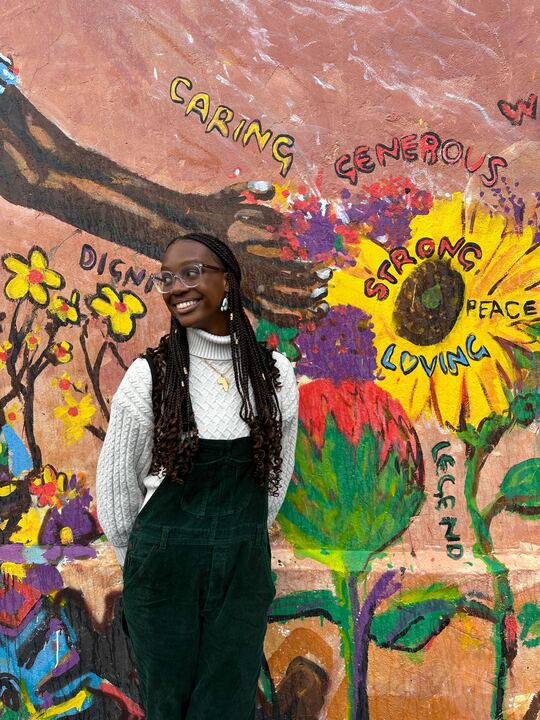
Far too often we center Black trauma without highlighting Black joy, reproducing the same hegemonic whiteness that was designed to oppress us.
The African continent has historically been characterized through a deficit-based perspective, placing its deprivation under a magnifying glass for the Western world to see. While it is imperative to acknowledge the systemic injustices that South Africa faces, it is equally critical to emphasize the magnificent assets that are commonly erased in Eurocentric lines of discourse.
We must shift the gaze to not only tell stories of pain, but joy as well.
The coastal city radiates effortless beauty from the largest scale to the smallest of interactions, spanning its breathtaking nature and wildlife all the way down to the friendly locals running mom and pop shops.
I experienced a lifetime’s worth of adventures in two months. While the exhilarating thrill of bungy jumping, exploring centuries-old caves, hugging elephants and hiking Table Mountain have all come to an end, nothing compares to the wonderful people I met and the invaluable lessons I learned that will live on forever.

Community is more than just an idea in Cape Town – it’s an action. No one does life alone, and one person’s struggle becomes a shared challenge for neighbors, friends and family to take on together. With the collective pride in their native cultures and 11 official languages – including Zulu and Xhosa, for example – the culturally pluralistic and linguistically diverse environment fosters a sense of belonging to something bigger than oneself.
Becoming immersed in an Afrocentric culture was an astonishing experience. I felt represented in ways I never had before, which was exemplified through Black hair positivity and hair salons designed for Black people on every corner.
Being Black in America is a unique phenomenon in which individuals are seen as Black, first and foremost, and subjected to racialized stereotypes afterward. In South Africa, because of the predominantly Black population, it was refreshing to finally be seen for who I am on a deeper level beyond the limited confines of race.
I traveled to Cape Town through the UCLA Global Internship Program and worked at Africa Unite, a human rights nonprofit organization dedicated to youth empowerment and providing resources to migrants, refugees and disadvantaged communities. The valuable knowledge that my coworkers taught me every day allowed me to evaluate South Africa from a research-based lens and continue learning outside of the internship.
I never anticipated that a place 10,000 miles away from home could transform my perspective on humanity as a whole.
Put simply, Cape Town is just built different.
From the moment I left the airport, I found myself thinking that I had never witnessed something so chaotic function so seamlessly. As taxi drivers weaved in and out of traffic yelling to recruit passengers, pedestrians confidently walked into the streets while cars zoomed between them. Street vendors sold organic fruits and vegetables while skilled artists bargained their paintings for those passing by. The unmatched talent of live street performers – young and old – energetically illuminated the entire neighborhood as they sang and danced to the upbeat tunes of traditional African music.
While their art and skills served as entertainment for us, it was often a source of income and form of survival for them.
I instantly found that my United States dollar held significant purchasing power compared to their currency, known as the rand. With one dollar equating to nearly 20 rands, a little can go a long way and truly make a difference.
South Africa’s struggling economy has a detrimental impact on locals struggling to make a meager income, while conversely, benefiting Western tourists who can afford to be extractive of the country’s valuable goods and services. Consequently, I made a concerted effort to funnel my money into the local communities and individuals who needed it most.
I discovered that the “simple” things I once took for granted were not so simple after all, but rather a luxury for others – electricity being one of them.
South Africa is currently undergoing a severe energy crisis, and load shedding was implemented to ensure that the energy demand doesn’t exceed the corporation’s ability to supply it. This resulted in scheduled electricity blackouts at different times throughout the city for multi-hour increments, putting a halt on business operations and the daily tasks dependent on power.
Nevertheless, like many other systemic issues, not all communities are impacted by load shedding the same. My UCLA housemates and I were fortunate enough to have an external generator that provided additional power during load shedding, while economically disadvantaged communities were left with absolutely no light or power. This invasively disrupted their days and productivity at their workplaces, resulting in economic repercussions for the country writ large.
This stark reality was just one of many instances when I had to deliberately check my privilege as I encountered a series of culture shocks.
Being raised in a quiet suburban town, it was refreshing to live in Observatory, otherwise known as Obz, for two months, a vibrant predominantly Black neighborhood filled with cute cafes, fashionable thrift stores, colorful murals and lively bars. This was all in proximity to the University of Cape Town, which is the No. 1 university on the continent.
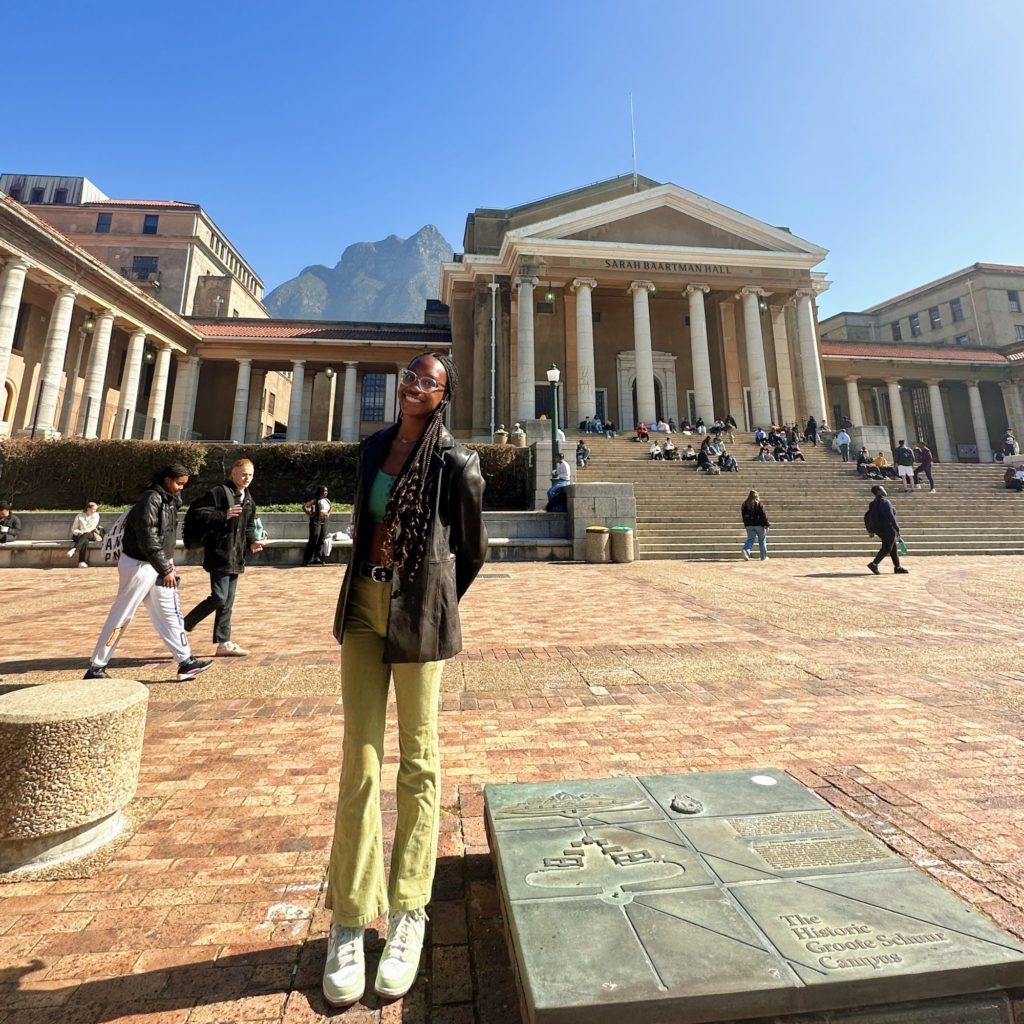
Obz eventually became a place I grew to adore as I connected with welcoming locals and discovered heart-warming restaurants such as Ivy’s Kitchen and Timbuktu Café, which serve traditional South African and Ethiopian cuisine, respectively.
Despite the exuberant nature of Obz, my comfort walking around the city was a slow but steady work in progress because of initial safety concerns. I became aware of the high crime rates in South Africa and was warned about potential robberies, vehicle “smash-and-grabs” and the chillingly common occurrences of gender-based violence. It was certainly an adjustment to exercise increased precautions and diligently follow restrictions to prevent harm.
Nevertheless, I began to question the harmful narrative that these areas were inherently “dangerous,” identifying a familiar racialized pattern. Similar to the U.S., the areas deemed most safe often had the highest white populations.
In South Africa, this ideology remained prevalent given the dynamic history of apartheid, an institutionalized racial segregation system that forcibly separated white and Black people while depriving marginalized groups of access to resources.
Although apartheid ended in 1994, the lasting effects of the damaging system are still ingrained in the fabric of the nation today and manifest themselves pervasively as de facto segregation.
Lelethu Nogwavu is the human rights project development officer at Africa Unite and a second-year doctoral candidate specializing in public law at the University of Cape Town. She researches criminal justice and administrative law with an emphasis on the criminalization of homelessness in South Africa.
“We still have laws that were used during apartheid still lingering in our legal system … so that still causes the homelessness and poverty,” Nogwavu said. “Being the majority in the country, we (Black people) own very little of the resources and land, but you have the minority – which are white people – who still own the means of production. That is a result of what happened during apartheid and colonization.”
As Nogwavu mentioned, apartheid is not just limited to the confines of an overturned law on paper. Its presence is indisputably seen in the explicit reality of South Africa being a divided country – in the housing segregation, educational disparities, lack of access to high-paying jobs, towering unemployment rates and every facet of society where Black people are consistently deemed second-class citizens and subordinated.
It was jarring to walk into a restaurant filled with all white customers and the only Black people in sight were the waiters. It was disheartening to visit predominantly Black high schools and see deteriorating infrastructure and hand-me-down textbooks. It was appalling to pass affluent, white cities lined with suburban houses and cleanly paved streets and then drive 30 minutes via car to arrive at Black informal settlements – also known as townships – that consist of shelters commonly built from metal sheets with sand and dirt-covered ground below them.
This reflects the same oppressive system of apartheid without the legal label – plain and clear.
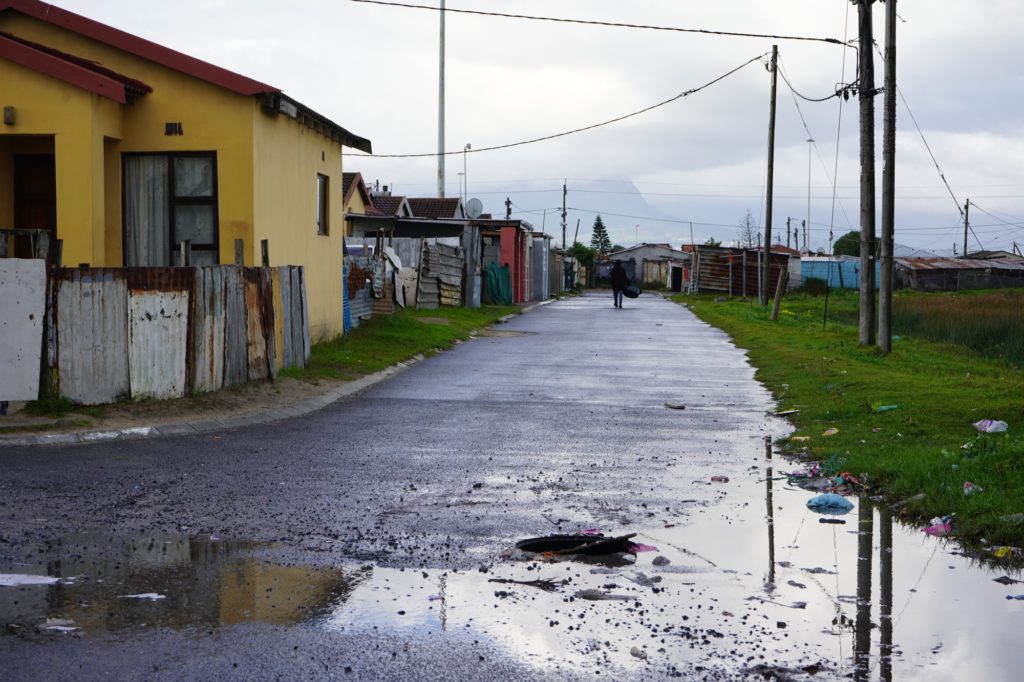
I began to observe that the racialized housing inequities of South Africa are not too far from those of the U.S. In fact, the two countries, situated on completely opposite hemispheres of the globe, are more similar than they are different.
Sam Henry, a first-year doctoral candidate in the Department of Anthropology at Rice University, conducted an ethnographic research project focusing on urban housing development and maternal health in a cross-country analysis of South Africa and the U.S. After living in Cape Town for the past two summers, she identified strong parallels between the history of housing segregation in Cape Town and her hometown of Amarillo, Texas.
“We have to look at things from a historical context because it’s an emergence of events and compilations of different situations that bring things to fruition,” Henry said. “So I asked, ‘How did we get to segregated living environments? How did we get people living in the hoods and living in poverty? And then, how is that affecting the women and mothers who are living there, and how’s that recycled back into the environment?’”
By drawing connections between the Jim Crow era and redlining in the US to apartheid and the Group Areas Act in South Africa, Henry found that the systemic effects of colonialism and white supremacy targeting Black communities were the constant underlying factors to the perpetuation of concentrated poverty, along with structural violence, substance abuse and gang activity. These housing environments then exacerbate issues regarding women’s and mothers’ physical health and well-being, she added.
For many mothers living in the townships, they must juggle the responsibilities of caring for their children with an absent father figure and traveling hours each day on multiple taxis to work in the city and afford food to put on the table for their families.
Kholosa Potwana is one of these mothers living in Khayelitsha, the largest township in Cape Town. Along with having two young children and working full-time at the VACorps Internship Program I was a part of, she dedicates her time to fostering youth education and reading literacy in Xhosa and English by founding the Bathande Children’s Reading Club.
After witnessing a significant literacy deficiency in her community, Potwana created this organization to actively invest in children’s futures and combat the educational shortcomings students encounter at poorly funded schools. Bathande gathers in Khayelitsha every weekend to engage in creative learning activities, read books, play games and sing songs.
“It takes a village to raise a child, so my motivation came from that statement,” Potwana said. “I was looking at my community, in my streets, and how there’s so many kids that are just hanging around and not doing anything, especially on weekends. … What if I take the two books that I was supposed to read for my kids and actually read them for the whole community and see how far we can go with that?”
Upon visiting her home in Khayelitsha and participating in Bathande myself, I observed that Potwana serves as the caretaker of the community, providing children with a safe haven to thrive amid the everyday challenges of living in poverty.
Spending time in Khayelitsha taught me what it means to be a part of a community and build a chosen family. It was a beautiful dynamic to witness. As energetic children ran around the streets with any ball or toy they could find, the adults gathered around a smoking braai to roast meats while the uplifting rhythm of Afrobeats blasted throughout the neighborhood.
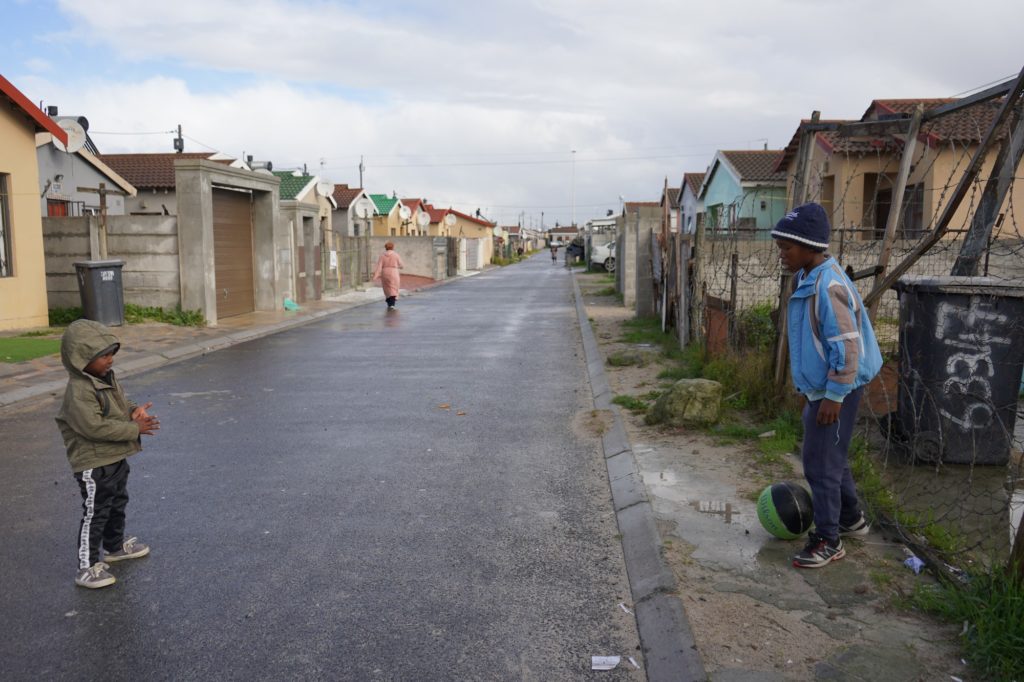
Although the people didn’t have much materialistically, they made the absolute best with what they did have and cultivated even more of what truly matters in life: genuine human connection and unconditional love.
The townships were the epitome of a tightknit community, but the harsh reality was that these areas had an incredibly tarnished reputation for being increasingly dangerous, drug-infested and crime-ridden. This was to the extent that Cape Town locals warned me not to visit and Uber drivers canceled my ride in fear of entering.
Although it is crucial to recognize the deep challenges present in the townships and not diminish the very real struggles that people face, we must understand that beauty and hardship can exist simultaneously and be perceived differently based on our positionality.
“One person’s dangerous ghetto is another person’s place of safety,” said Dion Cupido, a Black artist from Cape Town, in his portrait description featured at an art gallery. “How does my reality compare to your reality, and ultimately; can reality even exist outside of ourselves?”
For many amazing people like Potwana who live in the townships, this is their reality, and while it can undeniably be rough at times, it is also a place they call home.
“I firmly believe that you cannot get to know communities from a distance,” Henry said. “We can’t project violence and oppression onto characteristics and people’s identities. That’s an issue of facilitators, not an issue of the people in the community. They’re constantly having to wrestle and deal with these things, but that’s not who they are.”
Thinking about the townships in South Africa, I can’t help but reflect on the misconstrued perceptions regarding low-income urban communities in our own backyard of Los Angeles. Rather than condemning the individual, we must analyze the broader systemic inequities that led them down that path in the first place.
Throughout my time in Cape Town, I reflected on something I once took for granted yet hadn’t known existed until it became crystal clear: the privilege of choice.
I had the privilege to choose every day if I wanted to drive to the city, travel to a faraway beach, eat at a nice restaurant or visit the townships. I saw the absolute best that Cape Town has to offer in two months, more than some locals experienced in their entire lifetime because they did not have the privilege to choose.
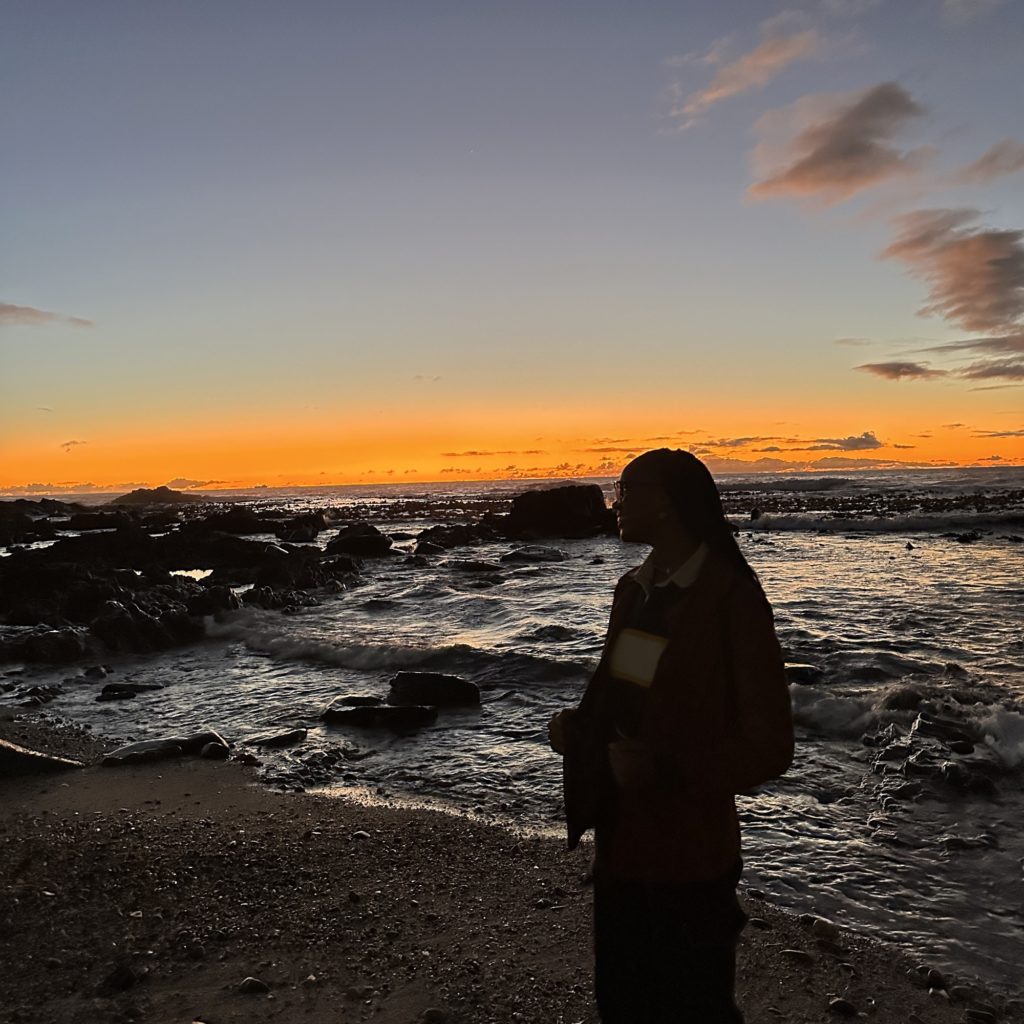
No matter how hard Black South Africans work, the outcome is often fruitless – just like the American Dream that promises upward social mobility yet disregards the pervasiveness of systems that were not designed for our communities to succeed for centuries.
Regardless, the Cape Town locals carry an indistinguishable light that never blows out despite the hardships they may face on a daily basis.
Beauty is found in every crevice of Cape Town, from the chaos of the central business district, the fancy beach cities and the exquisite nature of Table Mountain to the community-oriented townships like Khayelitsha. There is an abundance of hidden treasures as long as you are willing to find them.
Cape Town, South Africa transformed into a home that will hold a special place in my heart long after leaving – something I never thought a foreign city could do.

